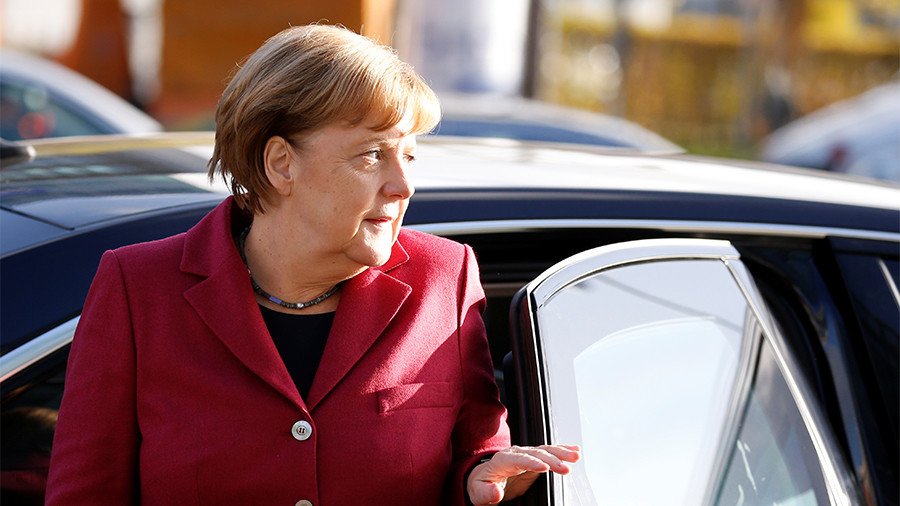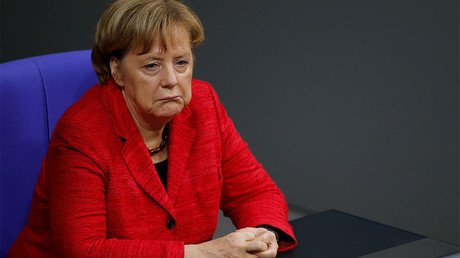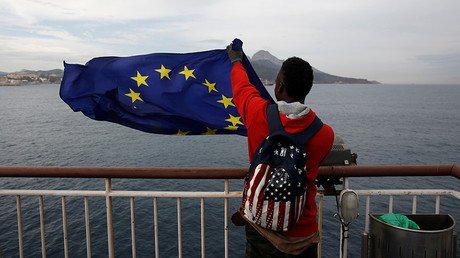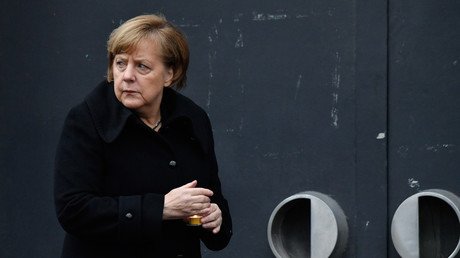Social Democrat members approve ‘grand coalition’ with Merkel, pave way for her 4th term

German’s center-left Social Democrats (SPD) have agreed to form a grand coalition with Chancellor Angela Merkel's party, the CDU, after months of political uncertainty. The deal was reached despite divisions within the SPD.
Some 66 percent of the SPD members approved entering a coalition with Chancellor Angela Merkel's Christian Democratic Union (CDU) and its Bavarian sister party Christian Social Union (CSU), the social democrats’ official confirmed on Sunday after a postal ballot.
Almost 464,000 members were eligible for voting, with a total of 378,437 having cast their ballot, NTV reports.
“We now have clarity,” SPD chief Olaf Schols announced in the party’s HQ in Berlin. He added that he'll work on putting a cabinet together this week. Scholz has already informed Merkel on his party fellows’ decision. The acting Chancellor congratulated the SPD on the “clear result,”saying she is looking forward to continuing work with the Social Democrats. If the Social Democrat members voted against the talks, it would almost certainly trigger fresh elections that could end Merkel’s 12-year leadership of the country.
In late February CDU on its part approved a coalition deal with the SPD. The Christian Democrats' conference in Berlin followed Merkel’s announcement of her picks for a new, younger cabinet intended to rejuvenate the party.
The stalemate to form a government has lasted for months, following the September 24 general election. Shortly after the polls, in which Merkel’s party along with the SPD saw a dramatic drop in voter support, the chancellor attempted to form so-called ‘Jamaica’ coalition with the Free Democratic Party (FDP) and the Greens.
The option evaporated as the FDP pulled out of the negotiations, with divisions over immigration being among the key stumbling blocks. Merkel was then forced to look for another coalition partner to avoid new polls or forming a minority government.
Former SPD leader Martin Schulz repeatedly ruled out forming a coalition with the CDU both in the run-up to the September elections and after them. The parties locked horns over their vision for Europe, among other issues. Schultz has advocated strongly for the creation of a 'United States of Europe' under a single constitution by 2025. This position has received little support from CDU members.
The potential new alliance with Merkel was also met with vehement opposition from some SPD members, especially within the party's youth wing. Against all odds and despite internal divisions in the SPD, the two parties finally reached a coalition deal in February.
Like this story? Share it with a friend!















